Skip to content
By expert professors as follows:
1. Visualisation for making sense of mountains of data
By?????? Asst. Dr. Robert P. Biuk-Aghia,
E11 University of Macau, macau
2. Learning through Overcoming Inconsistencies
By?????? Prof. Dr. Du ZHANG,
Macau University of Science and Technology, Macau
3. Spatial Media and Visualization
By? ???? Prof. Michael Cohen,
University of Aizu, Japan
On Thursday 17 August 2017,
At Class room No.4/2, 4th floor and ?Training room 1/5, 1st ?floor
and Friday 18, August 2017,
At Class room No.4/2, 4th floor
School of Information Technology,
King Mongkut?s University of Technology Thonburi
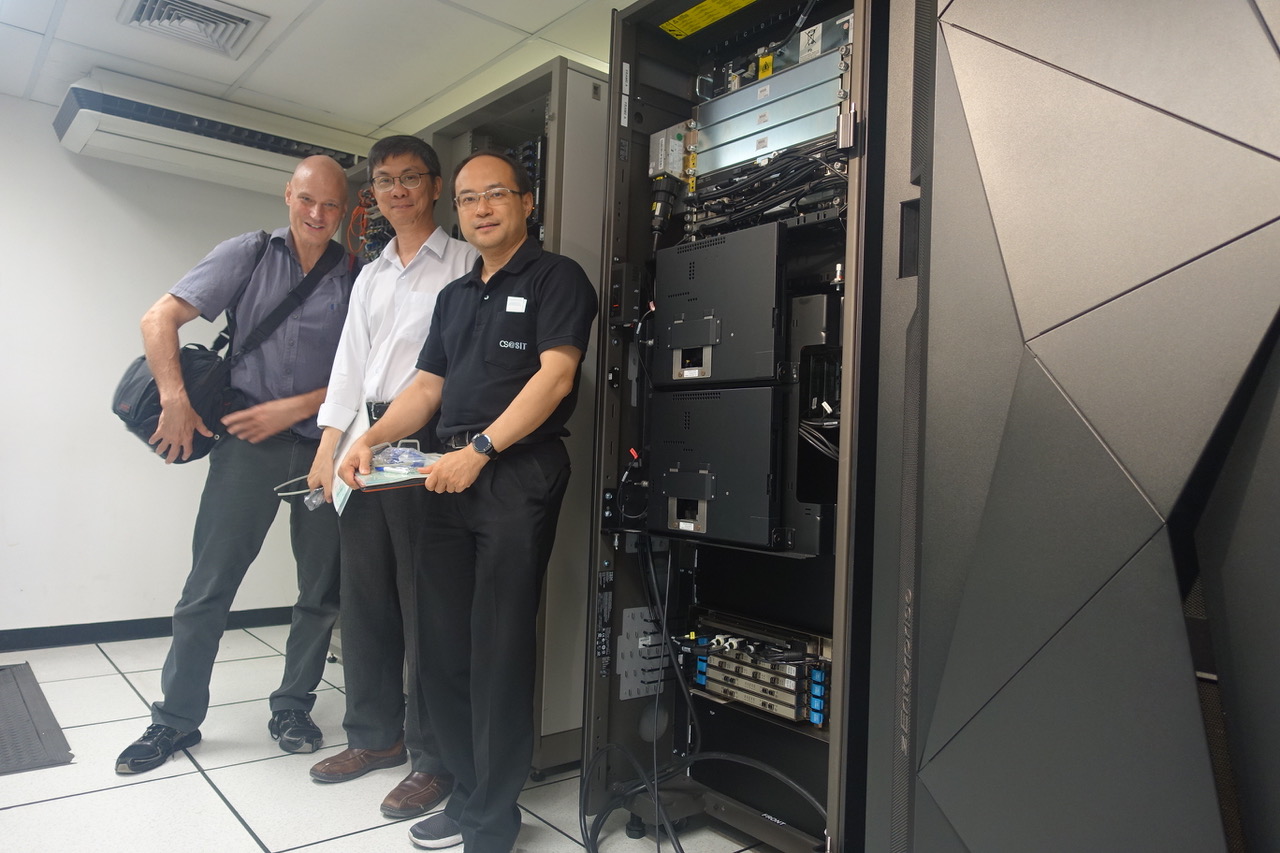


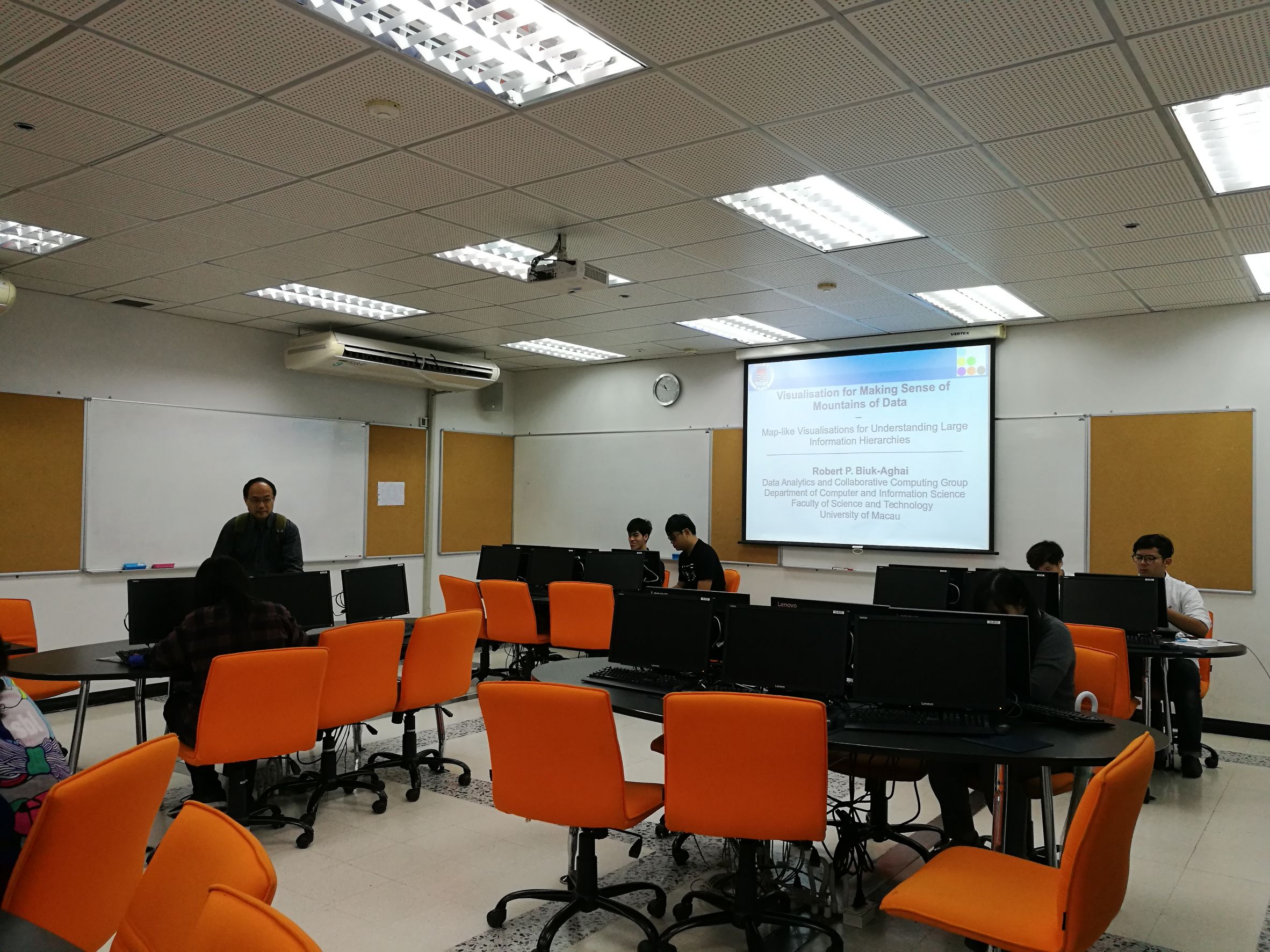
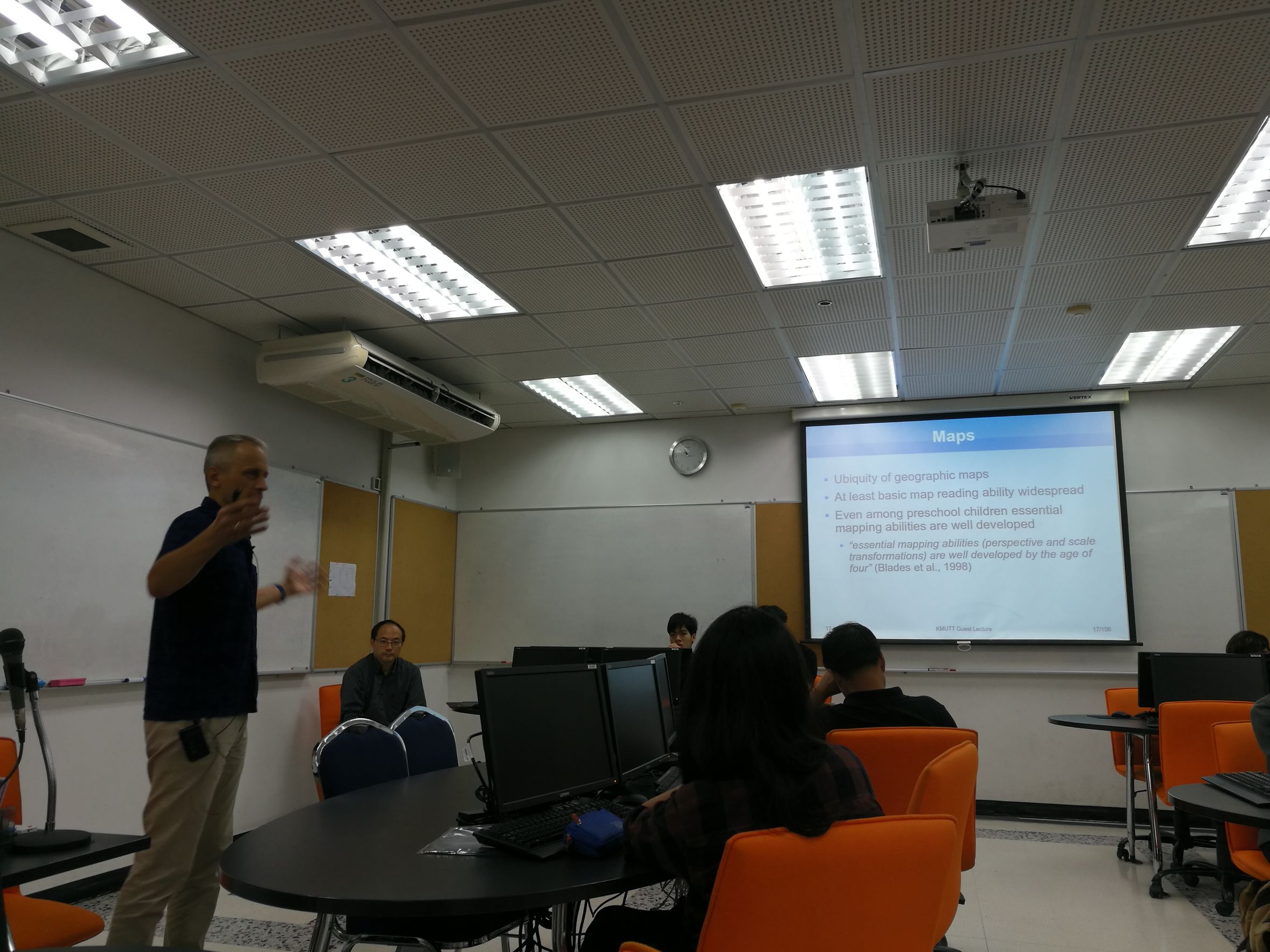
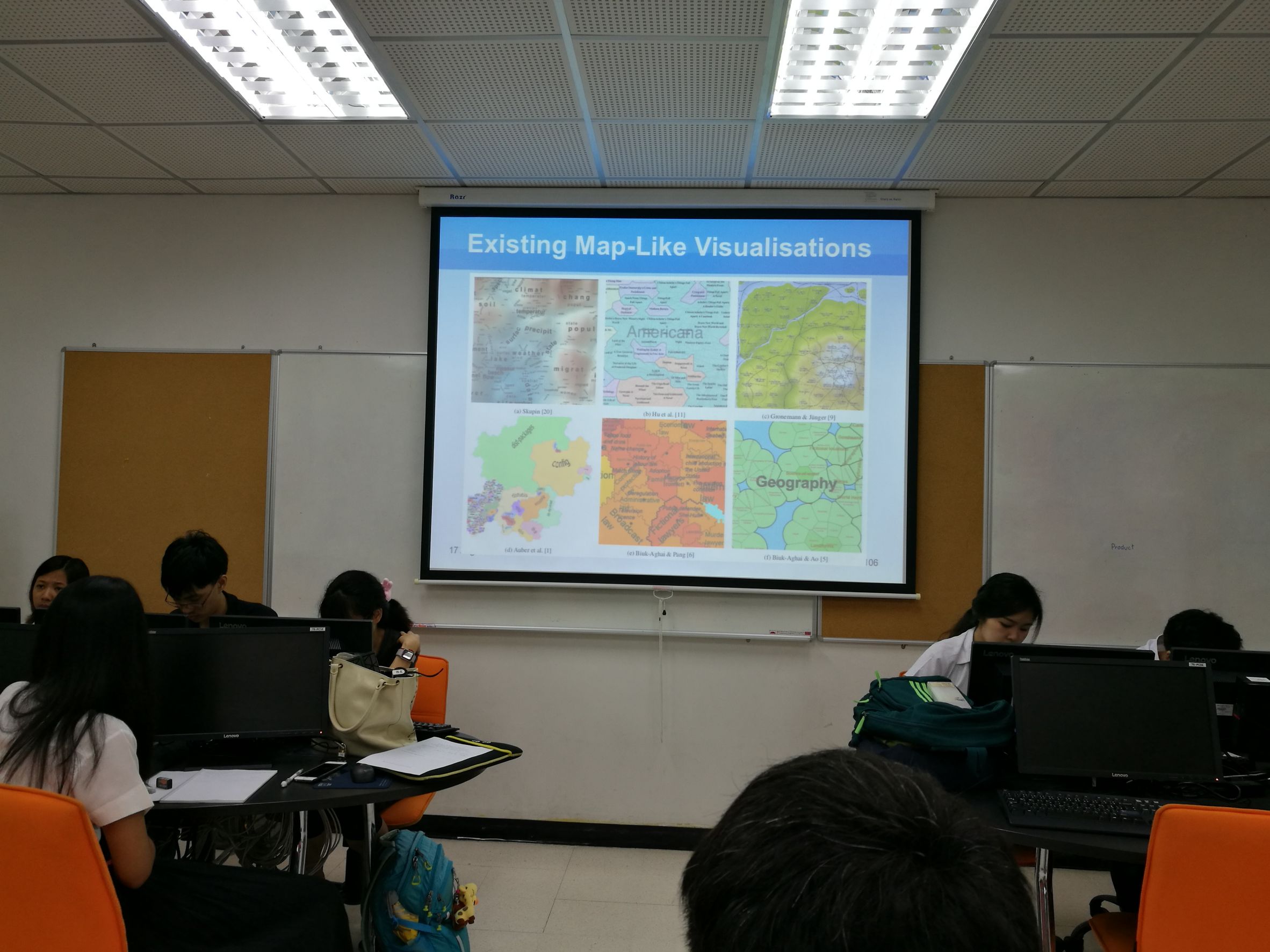

Keynotes
Keynote speech 1
Learning through Overcoming Inconsistencies
Prof. Du ZHANG
(Macau University of Science and Technology)
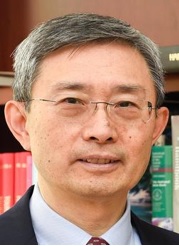
Abstract
Perpetual learning, also known as continuous, life-long, or never-ending learning, is an active research direction in machine learning. It is concerned with how to develop computing systems that can automatically, consistently and continuously improve their performance at tasks over time. Specifically, a perpetual learning agent, a long-lived problem-solving system whose knowledge could be of visualized forms, can be defined through its STEP dimensions.
Given?S?as a set of learning stimuli,?T?as a set of tasks,?E?as type of experience, and?P?as performance metric, a computing system perpetually learns with regard to (S, T, E, P) if the system automatically, consistently and continuously improves its performance?P?at?T, following?S?and?E?over time.
There are many types of learning stimuli. In this talk, we focus on treating inconsistent phenomena (uncertainties, anomalies, surprises, conflicts, outliers or peculiarities that manifest themselves at various granularities of knowledge content) as learning stimuli, and adopting inconsistency-specific learning algorithms to refine and/or augment existing problem-solving knowledge through overcoming (explaining, or circumventing) the inconsistencies. Inconsistencies can serve as effective stimuli to learning because they often signify the inadequacies, gaps, deficiencies, or uncovered boundary conditions in an agent’s (visualized) knowledge.
We describe an inconsistency-induced learning framework called i2Learning for such perpetual learning agents whose life span is an alternating and open-ended sequence of task-performing episodes and learning episodes. Each learning episode is triggered by an inconsistent stimulus, and learning is essentially embodied in an agent’s capability to find ways to overcome inconsistent phenomena stemming from deficient (visualized) knowledge. Through refining its problem-solving knowledge, each learning episode leads to an improved problem-solving performance?P?for subsequent task-performing episodes.
Short Bio
Du Zhang is Professor and Dean of the Faculty of Information Technology, Macau University of Science and Technology, Macau, China. He received his Ph.D. and M.S. degrees, both in computer science, from the University of Illinois and Nanjing University, China, respectively. Previously he was a Professor and Chair of the Computer Science Department at California State University, Sacramento. He has research affiliations with numerous universities in the USA, UK, Hong Kong, China, Czech Republic, and Mexico.
Professor Zhang’s current research interests include machine learning (inconsistency-induced perpetual learning), knowledge-based systems, big data analytics, and software engineering. He has over 200 publications in these and other areas. He has served in various roles on numerous international conferences, and is editor or editorial board member for several journals in the areas of artificial intelligence, software engineering and knowledge engineering, big data, and applied mathematics. Professor Zhang is a senior member of both the IEEE and ACM, a board member of the Society of Information Reuse and Integration, and a member of Upsilon Pi Epsilon and Phi Beta Delta.
Keynote speech 2
Spatial Media and Visualization
Prof. Michael Cohen
(University of Aizu, Japan)

Abstract
The anticipated future of infoviz displays is broadly surveyed. Multimodal displays?including multimedia animation, sonification with spatial audio, microtypography, panoramic and omnidirectional displays, and stereography?represent enticing ways to extend infoviz into next-generation interfaces. The emergence of ubicomp (ubiquitous computing), IoT (internet of things), VR (virtual reality) & AR (augmented reality) paradigms, including mobile-ambient interfaces integrating personal control and locative resources, offer new options for ambient displays. HMDs (head-mounted displays), speaker arrays, roomware, and lighting can be exploited by opportunistic systems to maximize information bandwidth, scientific insight, and experiential satisfaction. Room-sized immersive interfaces were described by author and scientist Isaac Asimov 50 years ago as the “Prime Radiant” in his science fiction “Foundation? series. Asimov?s inspired vision is recapitulated, and shown to be increasingly applicable to contemporary capabilities. This keynote address features live demonstrations, including embedded animation, spatial sound, mobile interfaces, and chromastereopsis.
Short Bio
Michael Cohen received an Sc.B. in EE from Brown University (Providence, Rhode Island) in 1980, M.S. in CS from the University of Washington (Seattle) in 1988, and Ph.D. in EECS from Northwestern University (Evanston, Illinois) in 1991. He has worked at the Air Force Geophysics Lab (Hanscom Field, Massachusetts), Weizmann Institute (Rehovot; Israel), Teradyne (Boston, Massachusetts), BBN (Cambridge, Massachusetts and Stuttgart; Germany), Bellcore (Morristown and Red Bank, New Jersey), the Human Interface Technology Lab (Seattle, Washington), and the Audio Media Research Group at the NTT Human Interface Lab (Musashino and Yokosuka; Japan). He is currently a Professor in the Human Interface Lab at the University of Aizu (Aizu-Wakamatsu, Japan).
He has research interests in user interfaces for telecommunications, groupware and CSCW (computer-supported collaborative work), stereotelephonics, digital typography and electronic publishing, hypermedia, ubicomp (ubiquitous computing) and virtual reality. Besides teaching various undergraduate courses including Information Theory, he co-teaches graduate-level courses in Acoustic Modeling, and Computer Music.
He is a member of the ACM, IEEE, 3D-Forum, TUG (TeX Users Group), and VRSJ (Virtual Reality Society of Japan).










